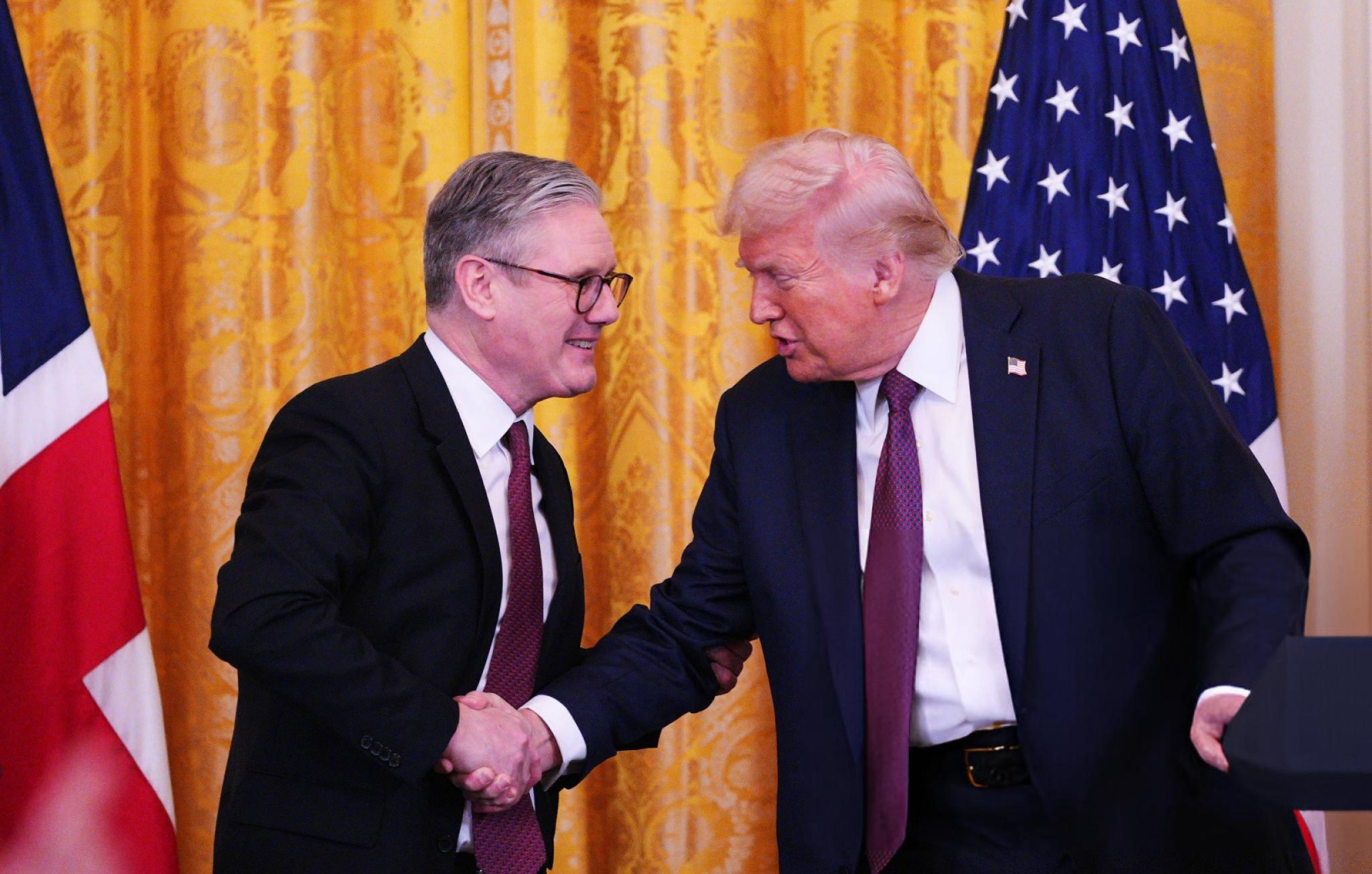Trump and Starmer agree historic UK-US trade deal with tariffs slashed for britain
Sir Keir Starmer has secured a landmark trade agreement with US President Donald Trump, marking a breakthrough in UK-US relations after months of economic uncertainty. The deal, unveiled on the 80th anniversary of VE Day, slashes key American tariffs on British exports, offering much-needed relief to British industries such as car manufacturing and steel.
In a joint announcement on Wednesday, both leaders hailed the agreement as a “historic moment” and a testament to the strength of the so-called “special relationship” between the two nations. The UK becomes the first country to successfully negotiate concessions on Trump’s controversial “Liberation Day” tariffs, introduced last month and widely blamed for sending shockwaves through global markets.
“This is a fantastic, historic day for Britain,” said Starmer outside Downing Street. “This deal protects British jobs, boosts our manufacturing sector, and proves that diplomacy and pragmatism can prevail in an uncertain world.”
Under the terms of the agreement, US tariffs on British cars will drop from 27.5 per cent to 10 per cent, capped at 100,000 vehicles per year – nearly the total amount exported by Britain to the US in 2024. Duties on steel and aluminium will be eliminated entirely, a move welcomed by unions and industry leaders alike. However, a flat 10 per cent tariff will remain on other categories of British goods.
In return, Britain will remove its longstanding tariff on ethanol imported from the US, a substance widely used in the brewing industry. The agreement also includes measures to fast-track the import of US goods and will allow increased volumes of American beef into the UK. However, Downing Street was quick to clarify that existing UK food safety standards – including bans on hormone-treated beef and chlorinated chicken – will remain firmly in place.
Speculation had swirled that the UK might agree to changes in its digital services tax, which affects major US tech firms such as Google and Meta. But No 10 confirmed there would be no alteration to the levy, despite pressure from Washington.
There were also no exemptions won on pharmaceuticals, where reciprocal 10 per cent tariffs continue, nor any concessions for Britain’s creative industries, where a 100 per cent levy on UK film and television content remains in force.
Nevertheless, the deal is widely seen as a political win for Starmer, who has opted for quiet diplomacy rather than confrontation. His success contrasts sharply with the efforts of his predecessors, including Boris Johnson and Liz Truss, who failed to secure similar arrangements despite years of talks.
Mr Trump, addressing reporters in Washington, praised Starmer’s leadership: “We’ve tried for years to get this deal. It never quite came together. But with this prime minister, we got it done. Congratulations, Keir – this is a great deal for both countries.”
The timing of the announcement – aligned with VE Day commemorations – was deliberate, with Starmer noting it was a “fitting tribute” to decades of Anglo-American cooperation. “Eighty years ago, we stood side by side in the defence of freedom. Today, we stand together in a new chapter of economic partnership,” he said.
Financial markets responded positively. The pound rose against the dollar, and the FTSE 100 pared back losses after a volatile morning session. But not everyone was pleased.
Conservative leader Kemi Badenoch launched a scathing critique, accusing Labour of giving away too much. “We cut our tariffs – America tripled theirs. Keir Starmer called this ‘historic’. It’s not historic, we’ve just been shafted,” she declared.
Pressed on whether the deal was truly beneficial, Starmer acknowledged the constraints: “Are we in a better place than before Trump returned to the White House? No. But are we better off than yesterday? Absolutely.”
The agreement follows the announcement of a £25.5bn trade pact with India earlier this week and comes ahead of a potential breakthrough with the EU at a summit in London later this month.
Combined, these deals may mark a turning point for Starmer’s premiership following a bruising set of local election results and mounting pressure from within his party.






